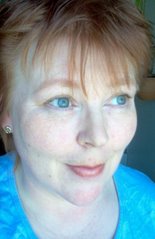
Doris Lessing, who has won the 2007 Nobel Prize for Literature has been one of Britain's most prominent writers for more than 50 years.
Her novels, most notably The Grass is Singing and The Golden Notebook, weave political and sexual themes into a complex narrative thread.
Lessing's themes are big ones: racism, communism, terrorism and environmental destruction.
Her output ranges from romances through to science fiction and take in the most intimate internal dialogues and sweeping historical set-pieces.
Doris May Taylor is a child of the British Empire. Born in Persia - now Iran - in 1919, she was brought up in Southern Rhodesia - now Zimbabwe - where her father owned a farm.
Her African childhood, amid the vastness of the bush and her time at convent schools, brought her a wealth of inspiration.
In 1949 after two failed marriages, the second to a hard-line communist, Gottfried Lessing, she left Africa, and most of her family, and moved to London to try her hand at writing.
Multi-layered tales
Lessing's first novel, The Grass is Singing, published the following year, was an instant bestseller.
The story of the wife of a white farmer and her affair with an African servant, the book broke new ground, both in terms of its outlining of an interracial relationship and in the sheer detail Lessing gave to her characters' internal lives.
Perhaps Lessing's most controversial novel was The Golden Notebook, published in 1962.
A multi-layered story about the different areas of one woman's personality, her passions and hatreds, it is by far the most complex, and longest, work Lessing has ever produced.
Lessing has written more than 30 novels
She has also produced startling works, such as the semi-autobiographical Children of Violence series and Briefing for a Descent into Hell (1971), a frightening and surreal examination of mental illness.
By the late 1970s, Lessing left the African-themed novel behind and moved into science fiction.
In the Canopus in Argos series, she outlines a dystopic vision of the future, with natural catastrophes and tyranny becoming the norm.
The critic, Paul Schlueter, noted that Lessing's "high seriousness in describing Earth's own decline and ultimate demise is as profoundly apocalyptic as ever".
More recently, Lessing has produced novels like The Good Terrorist (1985), a satire on romantic politics, and The Fifth Child (1988), about the havoc wreaked on a family by an antisocial and violent child.
Her latest work, The Cleft, is a sci-fi novel which imagines what happens to a mythical all-female world when men are introduced.
Speaking at the Hay literary festival in June, Lessing said the book had been partly inspired by her own experience of giving birth at 19 and the woman in the next bed, already a mother of two girls, harshly rejecting the son she had just had.
The writer also addressed her critics - saying she had been surprised by the "horrible" early reviews of The Golden Notebook.
"There's something abrasive in me because I have often made people very cross," she mused.
But she said as a writer it was important not to care what other people think and that the profession must honour that.
"We are free... I can say what I think. We are lucky, privileged, so why not make use of it?"
- BBC News 11.10.2007

1 comment:
I was so pleased to hear she had won. Well-deserved. I have long enjoyed her work.
Post a Comment